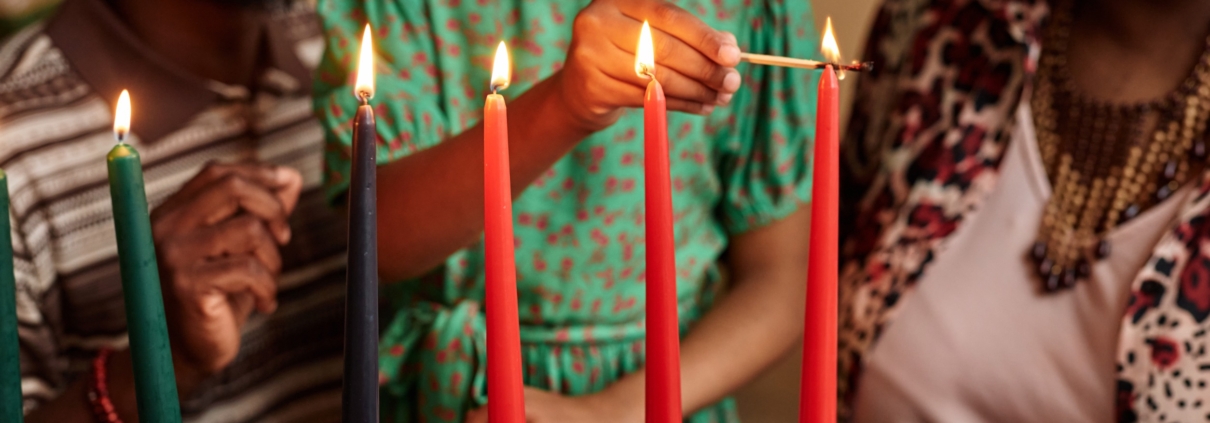Celebrating Kwanzaa: A Family Guide to Understanding Its Meaning and Cultural Relevance
Hello, wonderful families of Language Kids World! Today, we’re embarking on a special journey to explore Kwanzaa, a vibrant and meaningful celebration. It’s not just a festival; it’s a rich cultural tapestry woven with history, values, and community spirit. Perfect for families like ours to learn, share, and grow together. So, let’s dive into the colorful world of Kwanzaa!
What is Kwanzaa?
Kwanzaa is a week-long celebration that honors African heritage in African-American culture. It is observed from December 26th to January 1st each year. Unlike holidays tied to religious traditions, Kwanzaa is a cultural festival that brings people together to celebrate their shared heritage and values.
The Origins of Kwanzaa
Kwanzaa was created in 1966 by Dr. Maulana Karenga, a professor of Africana Studies. Amidst the civil rights movement, Dr. Karenga sought to design a celebration that would help African Americans reconnect with their African cultural and historical heritage. The name “Kwanzaa” is derived from the Swahili phrase “matunda ya kwanza,” which means “first fruits.”
The Seven Principles of Kwanzaa (Nguzo Saba)
At the heart of Kwanzaa are the Nguzo Saba, or seven principles. These principles are values that reflect African culture and promote community among African Americans. They are:
Umoja (Unity): Striving for and maintaining unity in the family, community, nation, and race.
Kujichagulia (Self-Determination): Defining, naming, creating, and speaking for ourselves.
Ujima (Collective Work and Responsibility): Building and maintaining our community together and making our siblings’ problems our problems and solving them together.
Ujamaa (Cooperative Economics): Building and maintaining our own stores, shops, and other businesses and profiting from them together.
Nia (Purpose): Making our collective vocation the building and developing of our community to restore our people to their traditional greatness.
Kuumba (Creativity): Doing always as much as we can, in the way we can, to leave our community more beautiful and beneficial than we inherited it.
Imani (Faith): Believing in our people, our parents, our teachers, our leaders, and the righteousness and victory of our struggle.
Celebrating Kwanzaa: Traditions and Activities
Lighting the Kinara: A central symbol of Kwanzaa is the Kinara, a candle holder with seven candles (Mishumaa Saba). Each night of Kwanzaa, a candle is lit to represent one of the seven principles.
Kwanzaa Feast (Karamu): On December 31st, families gather for Karamu, a large traditional meal. It’s a time of rejoicing, sharing, and remembering. Families enjoy dishes that reflect their African roots, often including fruits, vegetables, and spicy foods.
Sharing Gifts: Gifts are given mainly to children, and they typically include a book and a heritage symbol, both of which emphasize the values of learning and heritage.
Creative Activities: Families are encouraged to engage in activities that celebrate their cultural heritage, like storytelling, African drumming, and dancing. It’s a wonderful opportunity for children to learn and express themselves creatively.
Why Kwanzaa Matters Today
Kwanzaa is more than just a holiday; it’s a reflection of a community’s journey, struggles, and triumphs. It reinforces the importance of family, culture, and history, making it a powerful tool for teaching these values to our children. By celebrating Kwanzaa, families can deepen their understanding of their cultural roots and strengthen their bonds.
Embracing Kwanzaa’s Spirit
As we explore the world and its diverse cultures, Kwanzaa offers a unique and meaningful experience for families. It’s an opportunity to celebrate unity, reflect on our values, and embrace a rich cultural heritage.
So, this Kwanzaa, let’s come together as a community to light the Kinara, share stories, and celebrate a culture full of history and heart. Happy Kwanzaa, everyone! Let’s fill our homes with the warmth and wisdom of these timeless traditions. 🕯️
#Kwanzaa #FamilyTradition #CulturalCelebration #Unity #Heritage #LearningTogether

Founder and Director of Education at Language Kids.
M. Ed.



Leave a Reply
Want to join the discussion?Feel free to contribute!